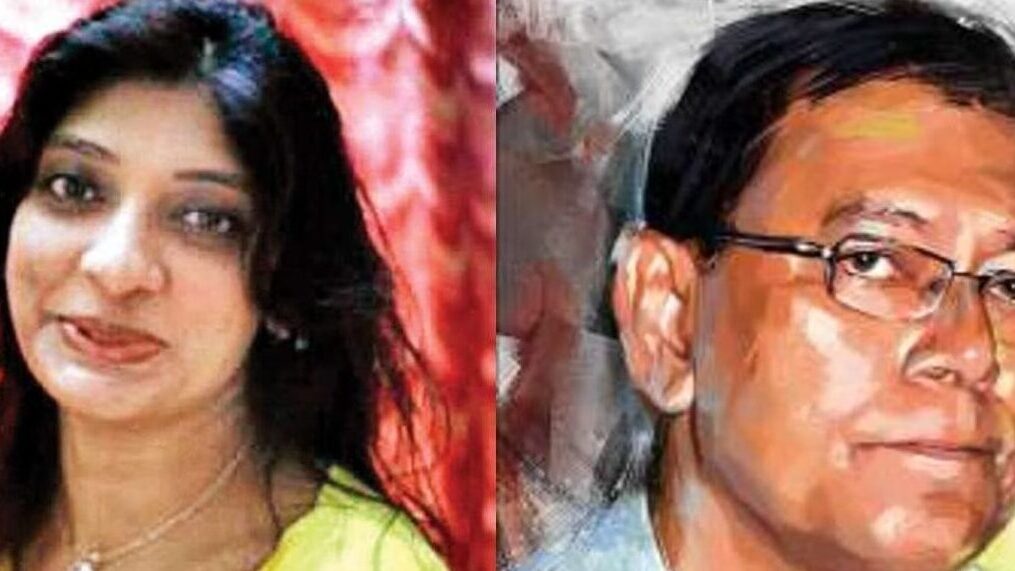The J Dey murder case is one of the most sensational and shocking cases in the history of Indian journalism. It involves the killing of Jyotirmoy Dey, a senior crime reporter for Mid-Day newspaper, by the gangsters of Chhota Rajan, a notorious underworld don, in 2011. The case also involves the alleged role of Jigna Vora, another journalist who was accused of passing on Dey’s information to Rajan.

The case took seven years to reach its conclusion, with Rajan and eight others being convicted and sentenced to life imprisonment, while Vora being acquitted, in 2018.
Who Was Jyotirmoy Dey?
Jyotirmoy Dey, also known as Jyotendra Dey, Commander J, and J Dey, was a veteran journalist who had over two decades of experience in covering crime and underworld stories. He was known for his fearless and investigative reporting, which exposed the illegal activities and secrets of many gangsters, including Dawood Ibrahim and Chhota Rajan. He had also written two books on the underworld, Zero Dial: The Dangerous World of Informers and Khallas.
Dey was born in 1955 in Bombay (now Mumbai) and started his career as a freelancer for Afternoon Despatch and Courier and Mid-Day newspapers. He later joined The Indian Express and Hindustan Times before rejoining Mid-Day as the crime and investigations editor. He was married to Shubha Sharma, another journalist, and lived in Powai, Mumbai.
Also Read: Jigna Vora’s Shocking Confession About J Dey Murder Case in Bigg Boss 17
How Was Jyotirmoy Dey Killed?
On 11 June 2011, Dey was returning to his home on his motorcycle after meeting his mother in Ghatkopar. Around 3 pm, four men on two motorcycles followed him and shot him from behind near D-Mart in Hiranandani Gardens, Powai. He was hit by six bullets and died on the spot. The assailants fled from the scene without being identified or caught.
The murder shocked the media fraternity and the public, who demanded a swift and thorough investigation. The Mumbai police initially suspected that the murder was related to Dey’s reporting on the oil mafia or the corrupt police officers. However, they later found out that the murder was ordered by Chhota Rajan, who was unhappy with Dey’s articles that portrayed him as a weak and cheap gangster.
Who Were the Accused in the Case?
The Mumbai police arrested 10 people in connection with the case, including Chhota Rajan, who was extradited from Indonesia to India in 2015. The other accused were:
- Satish Kaliya: The main shooter who fired at Dey.
- Anil Waghmode: The second shooter who accompanied Kaliya.
- Abhijeet Shinde: The rider of the motorcycle on which Kaliya sat.
- Arun Dhake: The rider of the motorcycle on which Waghmode sat.
- Sachin Gaikwad: The one who provided logistical support to the shooters.
- Nilesh Shendge: The one who provided weapons to the shooters.
- Mangesh Agawane: The one who conducted a recce of Dey’s movements.
- Deepak Sisodia: The one who arranged SIM cards for communication.
- Paulson Joseph: The one who arranged money for the operation.
- Jigna Vora: The journalist who allegedly passed on Dey’s information to Rajan.
The accused were charged under various sections of the Indian Penal Code (IPC), the Arms Act, and the Maharashtra Control of Organised Crime Act (MCOCA).
What Was Jigna Vora’s Role in The J Dey Murder Case
Jigna Vora was a journalist who worked for The Asian Age newspaper at that time. She was accused of having a professional rivalry with Dey and instigating Rajan against him by sending him emails and text messages containing Dey’s personal details, photographs, bike number, address, etc. She was also accused of having links with the underworld through her sources.
Also Read: Bigg Boss 17 Wild Card Entry: Who Will Join The House Next?
Vora was arrested in November 2011 and spent nine months in jail before getting bail in July 2012. She denied all the allegations against her and claimed that she was framed by some of her colleagues who were jealous of her success. She also said that she had no contact with Rajan or any of his associates.
What Was the Verdict of The J Dey Murder Case
The case was initially handled by the Mumbai police, who filed a chargesheet against the accused in February 2012. However, the case was later transferred to the Central Bureau of Investigation (CBI) in 2016, after Rajan’s extradition. The CBI filed a supplementary chargesheet against Rajan in September 2016.
The trial of the case was conducted by a special MCOCA court in Mumbai, presided by judge Sameer Adkar. The court examined over 150 witnesses and over 500 documents during the trial. The court delivered its verdict on 2 May 2018, convicting Rajan and eight others of murder and sentencing them to life imprisonment. The court acquitted Vora of all the charges, giving her the benefit of doubt.
The court observed that Rajan had a motive to kill Dey as he felt insulted and humiliated by his articles that exposed his criminal activities and showed him in a poor light. The court also said that Rajan had confessed to his role in the murder during his interrogation by the CBI and that his voice samples matched with the intercepted calls made to his associates.
The court also said that there was enough evidence to prove that Kaliya and his accomplices were the shooters who executed Rajan’s plan. The court also said that Joseph and Sisodia had provided financial and logistical support to the shooters. The court also said that Agawane had conducted a recce of Dey’s movements and passed on the information to Rajan.
The court, however, said that there was no conclusive evidence to prove that Vora had passed on Dey’s information to Rajan or that she had any contact with him or his associates. The court also said that the emails and text messages attributed to Vora were not authenticated or verified by any expert. The court also said that Vora had no motive to kill Dey as they were not rivals but friends.
Conclusion
The J Dey murder case is a tragic example of how a journalist was killed by the underworld for exposing the truth. It is also a case that shows how a journalist was falsely implicated and suffered a lot of injustice and trauma at the hands of the media and the law. It is a case that took seven years to reach its conclusion, with justice being served to some and denied to others.
